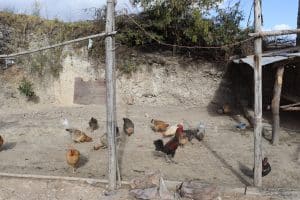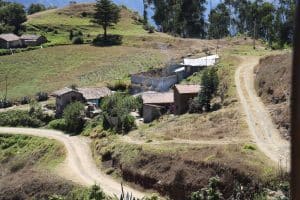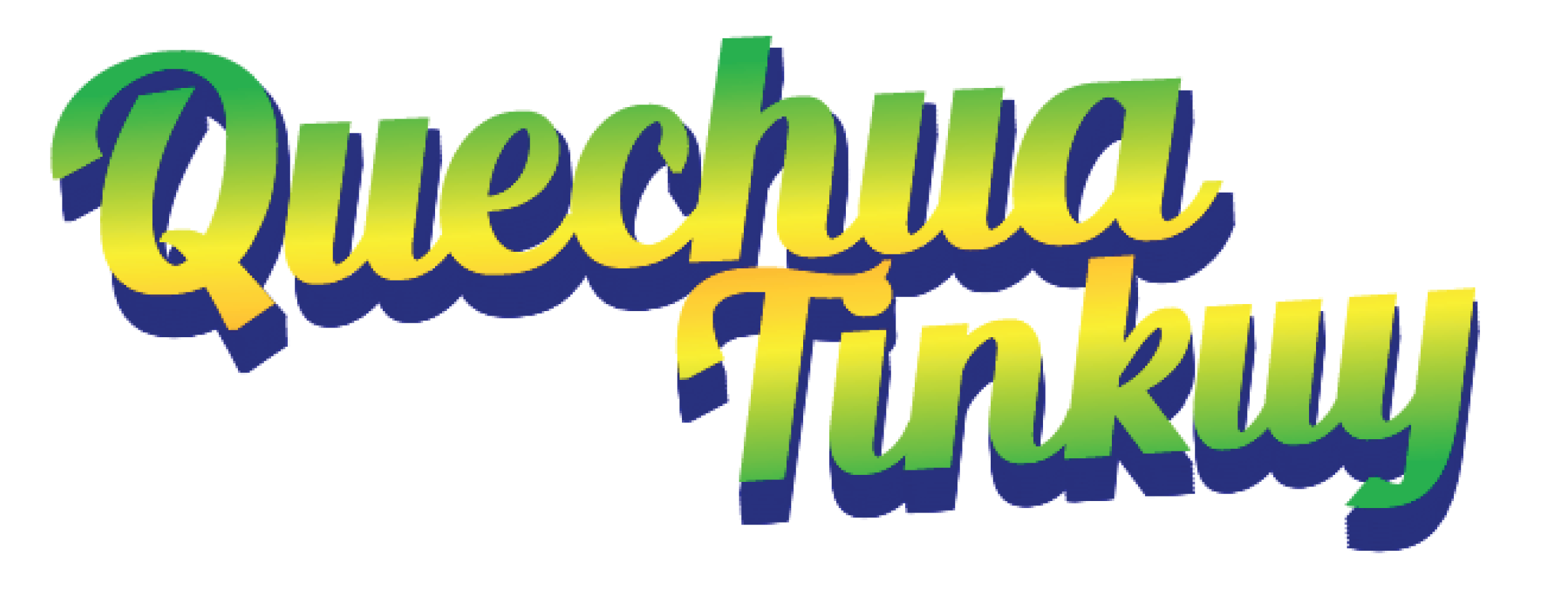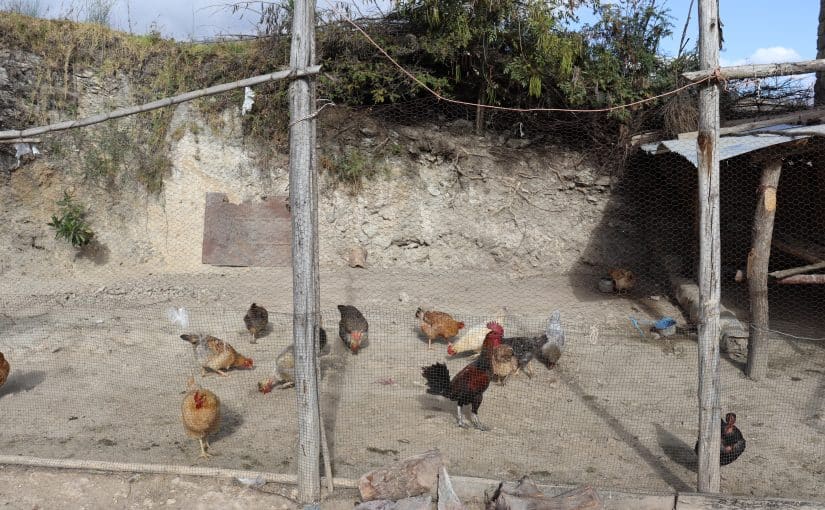
Qallarinapaq | Introduction
In this unit, you will learn the possessive suffixes that pertain to each personal pronoun. For this, keep in mind that the possessive suffix will vary depending on the ending of each word (if it ends in a vowel or consonant).
In the same way, we will use the possessive suffix and put it in to context by speaking about our activities in the past, present, and future.
Ready?
¡Qallarisun! / Let's get started!

Qillqa | Grammar
The possessive suffix will vary depending on the personal pronoun, for example:
WASI (house)
| Personal Pronoun | Possessive suffix | English |
|---|---|---|
| Ñuqa / I | My chakra | |
| Qan / You | Your chakra | |
| Pay / She/he | Her/his chakra | |
| Ñuqanchis / We | Our chakra (inclusive) | |
| Ñuqayku / We | Out chakra (exclusive) | |
| Qankuna /You | Your house | |
| Paykuna /Them | Their house |
Each possessive suffix will vary depending as well on the ending of the work. For example, if the word ends in a VOWEL the suffixes in the table above are added (y, yki, n, nchis, yku, ykichis, nku).
Example: Allqu – dog
Allquand – my dog
Allquyki – your dog
Allqun – her/his dog
Allqunchis – our dog (inclusive)
Allquyku – our dog (exclusive)
Allqu-ykichis – your dog
Allqu-nku – their dog
But if the word ends in a CONSONANT you add the particle NI before the possessive suffix, let's look at the following table.
ÑAN (path, road)
| Personal Pronoun | Possessive suffix | English |
|---|---|---|
| Ñuqa / I | Ñan-ni-y | My path |
| Qan / You | Ñan-ni-yki | Your path |
| Pay / She/he | Ñan-ni-n | Her/his path |
| Ñuqanchis / We | Ñan-ni-nchis | Our path (inclusive) |
| Ñuqayku / We | Ñan-ni-yku | Out path (exclusive) |
| Qankuna /You | Ñan-ni-ykichis | Your path |
| Paykuna /Them | Ñan-ni-nku | Their path |
Next, let's look at the use of the possessive suffixes and their conjugation in the past, present, and future.
Note: As a reference and a way to review, you can revisit the following units:
- Yachana 9: Kani, kanki, kan.
- Yachana 11: ¿Ñawpaq Ruwayninchiskuna? (What did we do in the past?)
- Yachana 12: ¿Qhepaman ruwananchis? (What will we do in the future?)
Ch’ulla / Singular
| Personal Pronoun | Phrase | Phrase in English |
|---|---|---|
| I | Wasi-and : | I cooked corn cobs in my house. |
| You | Wasi-yki : | I will go to your house tomorrow. |
| She/he | Wasi-n : | She/he will clean her/his house in Lima next year. |
Ashka / Plural
| Personal Pronoun | Phrase | Phrase in English |
|---|---|---|
| Ñuqanchis (inclusive) | Chaqra-nchis : | The anise will be growing in our chakra. |
| Ñuqayku (exclusive) | Chaqra-yku : | We will plow our chakra tomorrow. |
| Qankuna | Chaqra-ykichis : | You have sown sweet potato yesterday in your chakra in Abancay. |
| Paykuna | Chaqra-nku : | They are harvesting potatoes from their chakra in Huancavelica. |
Dialogue 1:
Filomena: Imanaynallan kashanki turay Martin?
Martin: Allillanmi kashani panay Filomena.
Filomena: ¿Maypin kashanki Martin?
Martin: Wasiandpi kashani Filomena. ¿Qanri?
Filomena: Chaqraandpi kashani turay. ¿Imata ruwanki paqarin?
Martin: Papaandta yanapasaq faenapi.
Filomena: ¿Chaymantari?
Martin: Chaymanta chaqraykuta yapunqaku.
Dialogue 2:
Martin: ¿Panay Filomena wawaykichu kay warma?
Filomena: Arí turay, yawarniy kay warma.
Double Possession in Quechua
Quechua is characterized by the double possession, or redundant possessive, for example:
Allqun – Her/his dog The word allqu with the suffix N refers to "her/his" dog
To make a sentence, use the suffix PA on the thing/person that is the possessor in addition to the suffix on the possessed item, for example:
Filomenapa allqun Literally refers to "Filomina's her dog".
Let's look at the following conjugation with the use of the suffix PA according to each personal pronoun.
ALLQU (dog)
| Personal Pronoun | Possessive suffix | English |
|---|---|---|
| Ñuqa / I | Ipa allqu-and | My dog |
| Qan / You | Youpa allqu-yki | Your dog |
| Pay / She/he | She/hepa – allqun | Her/his dog |
| Ñuqanchis / We | Ñuqanchispa allqu-nchis | Our dog (inclusive) |
| Ñuqayku / We | Ñuqaykupa allqu-yku | Our dog (exclusive) |
| Qankuna /You | Qankunapa allqu-ykichis | Your dog |
| Paykuna /Them | Paykunapa allqu-nku | Their dog |

Rimanakuna | Vocabulary
| Allqu | dog |
| Wallpa | chicken |
| Ruway | to do |
| Ch’uño | dried potato |
| Mikhuy | to eat |

Ruwapakuy | Exercises
Put what you have learned in this unit into practice. According to each image, write the sentence in Quechua in your notebook using the possessive suffix according to the personal pronoun (I, you, she/ he).

1.
Wallpakuna mikhuchiy
Feed the chickens.
_____________________________
I will feed my chickens.

2.
Chaqrata riy
Go to the chakra
_____________________________
You went to your chakra yesterday.

3.
Chuñu ruray
to make dried potatoes
_____________________________
Filomena is making dried potatoes in the plain.
*Chuño is dehydrated potato.
Answers
- Wallpaandkunata mikhuchisaq. I will feed my chickens.
- Qan chaqraykita riranki qayna p’unchay. You went to your chakra yesterday.
- Filomena chuñuta ruwashan pampapi. Filomena is making dehydrated potatoes in the plain.

